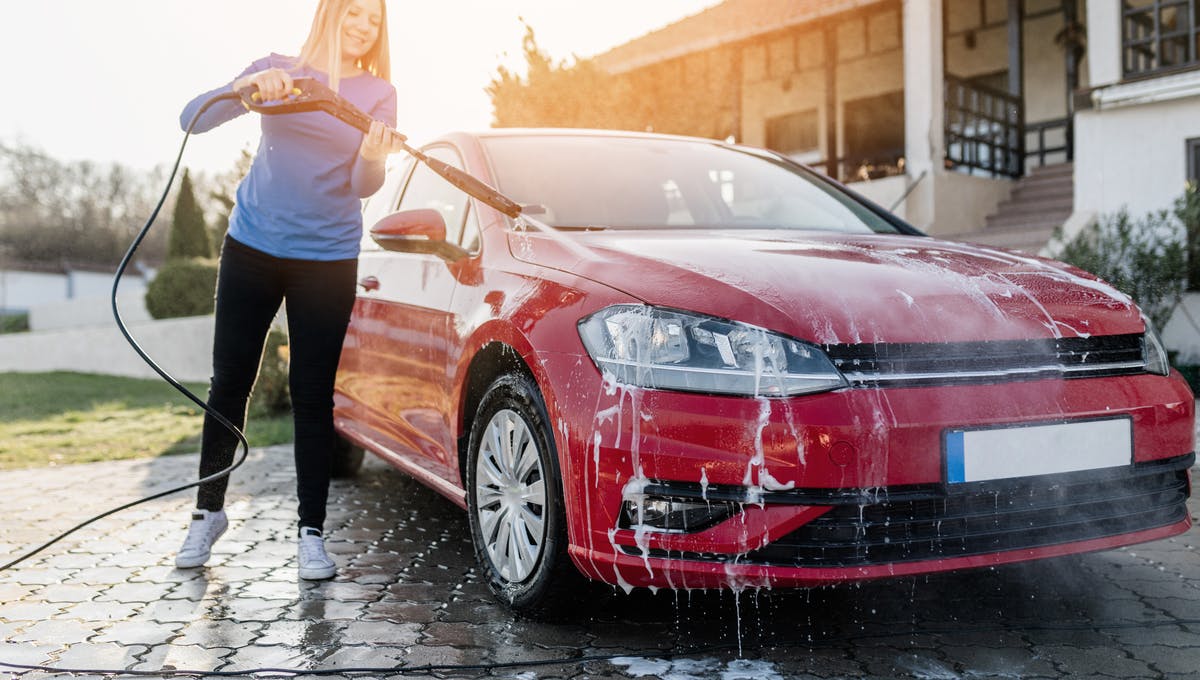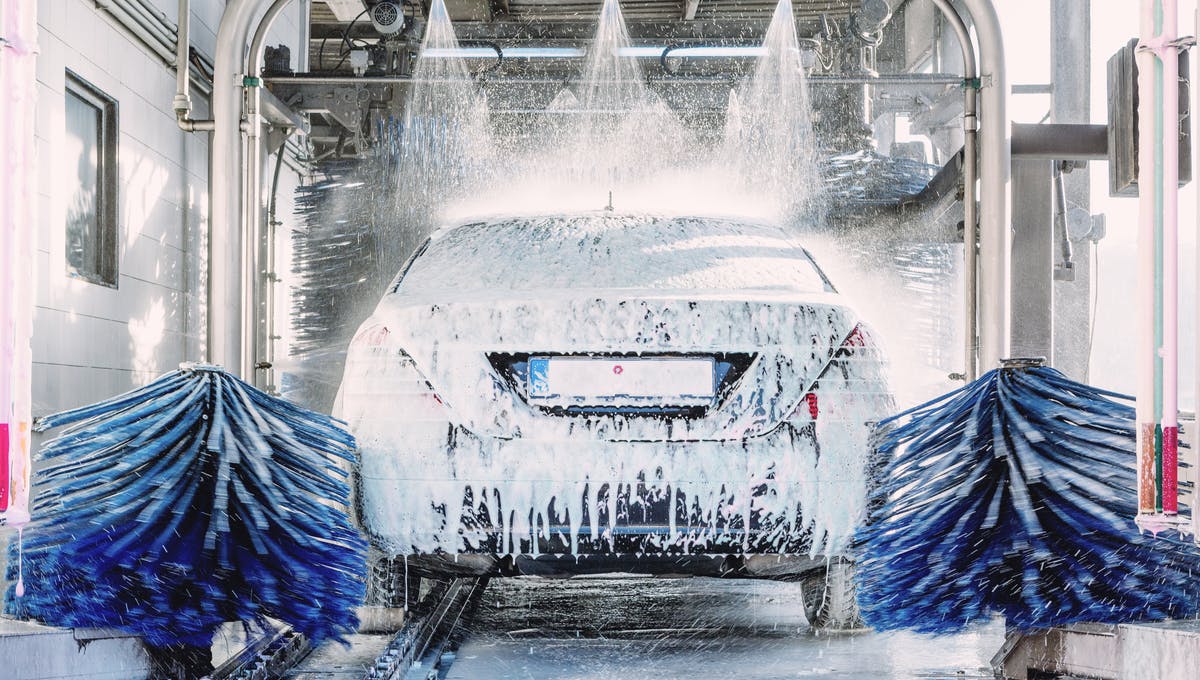How Often Should I Wash My Car?
We’ve all been guilty of pushing our car wash off for another day, ignoring the dirt creeping up the sides, and the bird droppings gathering on the roof of the car.
But whilst it’s normal to veer from your cleaning schedule every once in a while, this accumulation of dirt can start to have a negative impact on your paintwork.
Whether you’ve leased or bought your new car, you’re often investing a lot of money into driving, so it’s important to take proper care of your vehicle. Cleaning on a regular basis can help you stay on top of your car maintenance checklist, and your car will look better for longer.
So you know how to wash car, but how often should you be washing your car? In this guide we’ll cover whether you could be washing too much, the best times to wash, and the lowdown on automatic car washes.

Can You Wash Too Often?
If you’re worried about your twice monthly wash ruining your car, there’s no need to stress. In most cases, you’re probably not washing often enough to cause any damage.
However, hitting your car with sponges, brushes, chemicals and more on a too frequent basis will take its toll. We all like a nice clean car, but washing gradually wears your Clear Coat, which is the last protective layer on your car exterior.
Most exteriors are finished with pretty sturdy stuff nowadays, but it’s still worth considering whether you could be causing more damage than good. If you’re washing more than once a week, it should really only be if your car really needs it.
When should you wash your car?
As a general rule, car owners should be washing or rinsing at least every two weeks. However the best frequency and time to wash your car depends on a couple of different factors, like where you live, the time of year and where you keep your car.
Season
Cars in warmer dry climates generally need to be washed less, as the main concern you face will be a build up of dust.
Though it’s still good to keep up a regular schedule of washing (around fortnightly or at least once a month), you may want to focus more on how often you wax your car. Car wax or sealant will help protect the car exterior from intense rays that could fade and crack the car’s paint.
If you live in a cooler climate, you’re probably dealing with dirt, snow, salt, and rain throughout the winter months. These all leave residue on your car that can be corrosive and begin to wear away its protective coating.
It’s especially important to wash regularly if your streets are lined with road salt and grit. Salt can cause significant wear and damage to the paintwork, and even start to rust your undercarriage over time.
Car storage
There’s no ignoring that when you leave your car on the street, it’s susceptible to all kinds of dirt and damage.
Parking your car under a tree might seem a better option than leaving it in the sun, but prolonged time under trees can have just as negative an impact on your car. Fallen leaves might seem like a minor inconvenience to clean off, but if you’ve left them sitting for a while, the leaves could begin to corrode the paintwork.
You also face additional grime from tree sap, bug guts, branches, acid rain, and bird poop on your car. You can’t sit and keep watch over your car, so there’s nobody telling other drivers to avoid that big puddle about to shower your car in a coat of muck.
For those lucky enough to own a garage, car washing schedules can be fairly relaxed. You might be surprised how much dirt a car can accumulate just from sitting outside, so if it’s kept indoors, you’re in luck! Season and climate depending, you might only need to have your car washed about once a month.
Are automatic car washes bad for your car?
Most of us will have used an automatic car wash at some point in our lives. They’re quick, fairly cheap, and most importantly, save all the hassle of a DIY hand car wash.
But they have been given a bad rep recently for potentially causing more harm than good. Traditional car washes with rotating bristles are often harsher than the sponges or microfibre cloths you’d use when handwashing. Though they might be convenient, using automatic car washes too frequently can have a longer term effect on the paintwork. Bristles that are particularly stiff can cause micro scratches on your car surface, and these may only become visible after you’ve worn down the protectants on the surface of your car.
Soft cloth car washes have been seen as a favorable alternative, using cloths that more gently remove dirt from your exterior. However these can cause equal wear if the cloths are not properly or adequately cleaned. Dirt and debris from the previous wash could easily still cling to the cloth and you could end up with unnecessary scratches.
Unfortunately however you wash your car is going to have a toll on the paintwork. The chemicals used to clean all the dirt and mud off your car have an abrasive element just like the brush or sponge you use. The best way to minimise damage is to keep your brushes and sponges clean and separate for the various parts of your car, and of course, to check our post on how to wash a car.

Does not washing your car ruin the paint?
Even if you’re happy to drive around with a dirty car, there’s plenty of reasons why you shouldn’t. Though you don’t need to have it looking showroom ready all the time, failing to keep up with washing will negatively impact your paint job.
No matter how often you’re waxing, leaving excessive dirt to sit on your car for lengthy periods of time will wear away at your clear coat, and can lead to rusting and paint fading much faster than it normally would.
On top of the aesthetic wear, it can also be dangerous for yourself and other drivers. Poor visibility can easily lead to crashes, and you can face a fine of up to £1,000 for having an unreadable license plate.
Whether you want to wash your car by hand, pressure washer, or even automatic car wash, you’ll reap the benefits of giving it some extra TLC. Your well maintained car is sure to stick around for longer, and if you do decide to sell, you’ll likely achieve a higher resale value.


